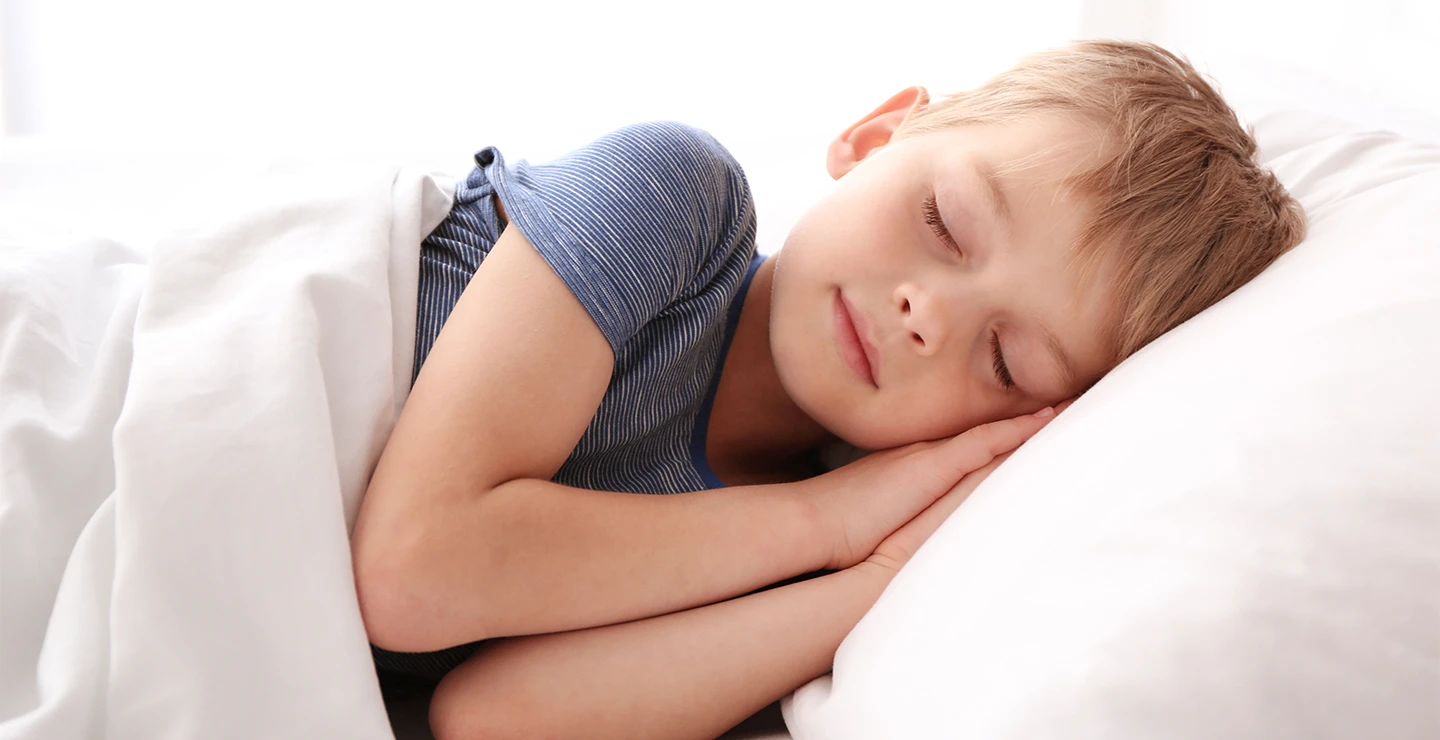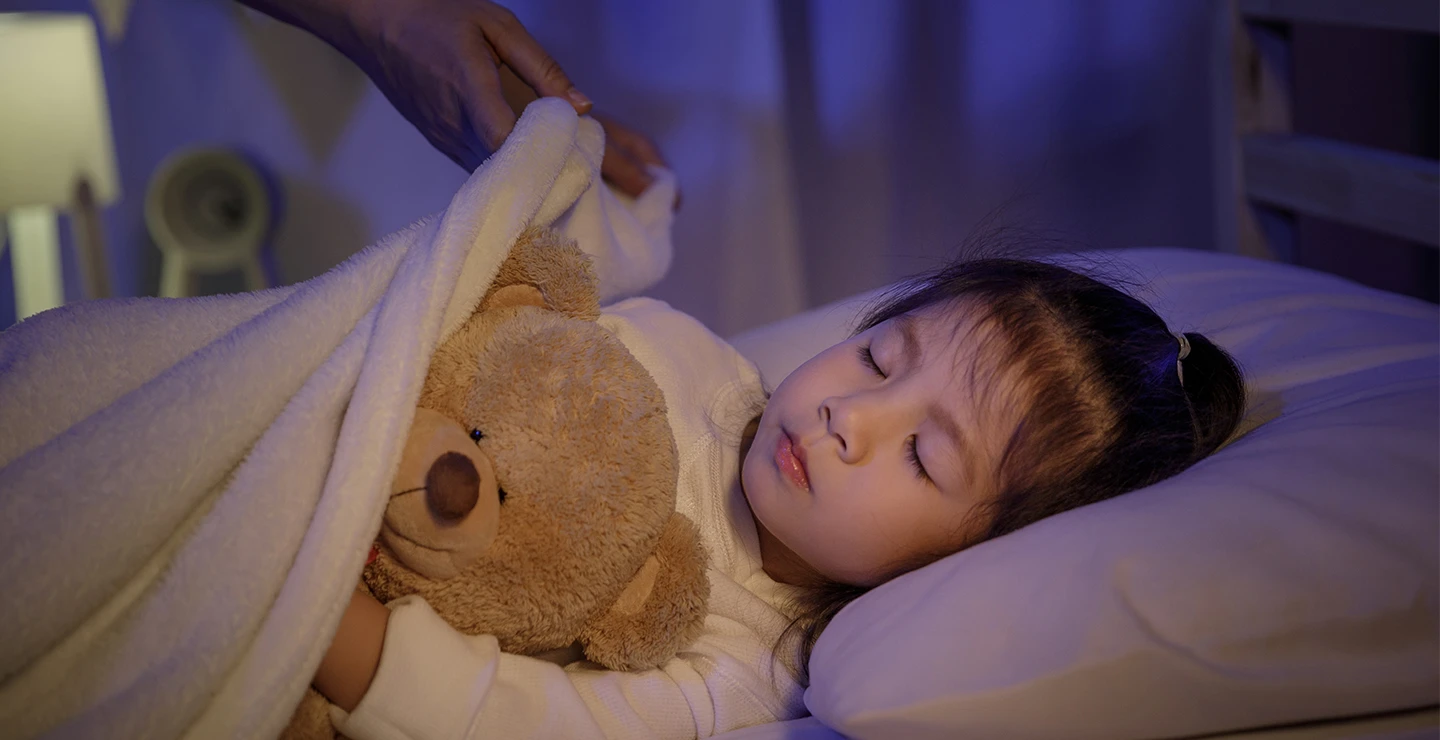Are your kids facing sleep problems? Here’s what you should know
As parents you’re attentive to every milestone in your children’s development.
Struggles & Remedies


As parents you’re attentive to every milestone in your children’s development. But sleep issues in children can be much tougher to discern than other markers of development because children’s sleep patterns and adaptation can vary widely and there is less of an accepted “norm.” Add to that, as children grow, they aren’t always forthcoming about not getting enough sleep or if they’re having sleep troubles. For young kids, they may not have the vocabulary to tell you they’re having trouble falling asleep, or they’re waking up in the night. Or, as the parent, you may be all too familiar with their issues because they are bouncing off the wall at night when you’re trying desperately to get them to sleep. Regardless, as the science becomes more prolific on sleep and kids, we are being awakened to the startling consequences of a lack of sleep in children across their stages of development.
Even one sleepless night can have a discernible impact on your child’s mood and performance.
It may not seem like a big deal if your child has a few bad sleeping nights here and there—in fact, it probably seems normal given all kids seem to struggle with sleep issues at some point, and occasional sleeplessness is an increasing problem in adults, as well. But the reality is, even one sleepless night can have a discernible impact on your child’s mood and performance. Here are some common next-day lack of sleep side effects:
Moodiness and Irritability:
Scientists have long understood the role of serotonin, a chemical in the brain, in regulating mood and emotional state. But it’s also clear that serotonin plays a key role in the sleep cycle. It is synthesized by the pineal gland to make melatonin, the hormone that tells the body when it’s morning vs night, and thus time to sleep. Stress and anxiety can result in lower serotonin levels, which in turn can be one of the causes of sleeplessness. Short term, this could manifest itself as outbursts or tantrums in your child; longer-term, it can cause issues with social adaptation and mental well-being.
Lack of Concentration:
Of particular concern for children in early school years where academic acclimation needs to be sponge-like due to the volume of and breadth of what they’re learning, sleeplessness can make it difficult for him or her to concentrate the next day. Sleep helps the brain “file and sort” information learned during the day, intuitively filing away information that isn’t needed imminently or repetitively and keeping that which is called on more frequently close at hand. Lack of sleep makes it harder for the brain to make those classifications and can result in poor (often unexplained at first) school performance.
Unexplained Sadness:
Insufficient sleep can cause difficulty in regulating emotion, due to the serotonin relationship noted above, in older kids and teenagers. And, older kids may be more reluctant to share their occasional sleeplessness—they may not want you to know they’re staying up late with their phone or trying to finish last-minute homework, or gaming. But left unaddressed, these types of sleep issues in children can result in lower-serotonin production. Serotonin is the neurotransmitter than regulates emotion and higher levels of serotonin are related to feelings like bliss and happiness SOURCE: https://www.livestrong.com/article/136959-how-does-serotonin-affect-sleep/ while lower levels are correlated to feelings of depression or anxiety.
Grogginess
After a bad night of sleep, kids may appear clumsier or slower than usual, and paired with a lack of energy, this can result in activities that are normally a fun and active release for them becoming frustrating and even scary.
It’s important to acknowledge, your child may not realize he or she isn’t getting enough sleep. This can be true even if they are chronically under sleeping; if they don’t know what a “normal” night’s sleep feels like, it’s hard to know they’re missing it. Look for these signs to determine if your child may be struggling with sleep.
It’s important to acknowledge, your child may not realize he or she isn’t getting enough sleep. This can be true even if they are chronically under sleeping; if they don’t know what a “normal” night’s sleep feels like, it’s hard to know they’re missing it. Look for these signs to determine if your child may be struggling with sleep.
- Extreme difficulty getting out of bed in the morning
- Oversleeping on weekends
- Snapping, moodiness, and irritability
- Unexplained increase in appetite and weight gain
- Sudden changes in mood
Ways to Help With Kids Sleeping Problems
- Teach great sleep hygiene
- Stick to a consistent routine.
- Remove bright screens (phones, tablets, video game consoles) from your kid’s bedroom
- Create a great sleep environment—block out sunlight, heavy blankets, and keep temperature at or below about 68 degrees.
- Avoid allowing your kid to oversleep on weekends in an effort to “catch-up” on lost sleep—irregular sleep patterns confuse the brain and make it difficult to manage the sleep cycle.
- If environmental adjustments and practicing good sleep hygiene doesn’t seem to help, consider a melatonin supplement for kids like melatonin gummies.
- And in all cases, talk to your pediatrician about what’s right for you and your family For more tips to fall asleep, information, and techniques to help your child get the rest his or her growing bodies and brains need.




